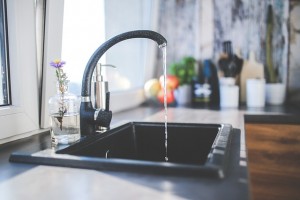How To Control Allergies Within Your Home
If there’s one thing common to Florida, it’s that allergy season hits hard. Even when outdoor allergies are not being a problem, indoor allergies, such as pet dander, mold and dust mite debris can all wreak serious havoc on your immune system. How do you get your allergies under control in your home? These easy tips will have you smiling and sneeze-free in no time.
5 Benefits of Improving Your Home’s Air Quality
With allergies, asthma and sick building syndrome in the news, there’s been a lot of focus on improving indoor air quality. But beyond your HVAC system and air conditioning efficiency, what does indoor air quality mean for your home and quality of life? Here are a few great benefits of improving your home’s indoor air quality.
Long-term Benefits of Improving Your Indoor Air Quality
With allergy season just around the corner, making sure you have good indoor air quality is surely a prime concern for many households, especially if you suffer from seasonal allergies or live with someone who does. There are several advantages in taking the extra steps to maintain an ideal indoor environment. Below are some of these reasons.
Improve Your Air Quality with These Minor Changes
It should go without saying that proper and regular HVAC maintenance is an excellent way to make sure you and your family enjoy quality indoor air. However, there are other easy and practical steps you can take to further enhance the quality of the air that you breath in your home. Below are a few ways we would like to highlight.
Spring Is Allergy Season: Improve Your IAQ
One of the best gifts you can give yourself if you suffer from allergies, seasonal or otherwise, is to improve indoor air quality St. Petersburg area home and consider adding an air cleaner to your home comfort system. You can more easily avoid avoid pollen and outdoor allergens in your controlled indoor environment, but still face allergens like dust mites, animal dander and insects which often trigger allergy symptoms. Improve your IAQ to reduce allergy and asthma symptoms. Here are some strategies for a sneeze-less spring allergy season:
Reduce Exposure to Allergy Season Triggers
- Close windows and doors at night and early morning when pollen counts are highest, and set your air conditioner on recirculate.
- Avoiding pets entirely cuts your risk of allergy flares, but the next best thing is keeping a short-haired pet and shampooing him/her often. Keep your pet out of the bedroom if possible.
- Avoid carpets and overstuffed furniture. Choose hardwood floors and sleeker furnishings when possible.
- Keep household surfaces clean and uncluttered.
- Encase mattresses and pillows in zippered, allergy-reducing covers.
- Wash bedding often in hot water.
- Get annual HVAC maintenance to help keep heating and cooling equipment clean and running properly.
- Clean floors/furnishings often with a HEPA filtered vacuum cleaner and/or special double filter bags.
- Wear a dust mask while cleaning your house.
- Use a damp or specially treated cloth when dusting.
- Leave the area for a few hours after housecleaning.
- Limit houseplants.
- Fix household leaks promptly and eliminate other causes of dampness.
- Thoroughly clean moldy surfaces.
- Control ants and cockroaches. Securely cover your garbage can. Opt for boric acid traps and poison baits, rather than chemical agents that can worsen your allergies and asthma flare-ups.
Keep Indoor Air Clean
- Use air conditioning with high-efficiency air filters compatible with your system. Change the air filter often.
- Some homes may benefit from duct cleaning.
- Keep indoor air dry and cleaner by using a whole-house dehumidifier and air cleaner, integrated with your central A/C. You’ll have cleaner air and inhibit dust mite and mold growth.
To learn more about how improve your IAQ to survive allergy season, contact Cox Air Conditioning & Heating today!
Image Provided by Shutterstock.com












Recent Comments